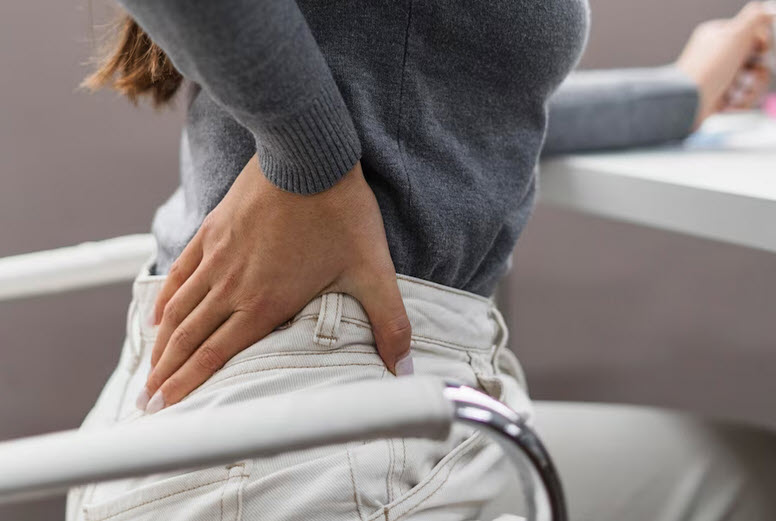If you or someone you know complains about back pain, it is often in the lower back region. However, the middle back between the base of the neck to the waist may also be the source of pain. This area is less prone to distress because it does not support as much of your weight and is less mobile that the other parts of your back. When middle back pain strikes, a visit with a qualified physician like drName at practiceName in cityName may be warranted.
Injury
The most prevalent cause for middle back pain is an injury due to falls, sports, or car accidents. A pulled muscle, bruised or fractured ribs, inflamed tissue and more can result in various levels of pain.
Herniated disc
If the discs in the spine bulge or rupture or are compressed, they place pressure on nearby sensitive nerves and may cause severe middle back pain. The most common symptoms of a herniated disc include pain in the back, buttocks or legs, numbness or tingling sensations, or muscle weakness.
Osteoarthritis
A degenerative disease that damages bones over time, osteoporosis makes bones brittle and can lead to strains or compression fractures. This condition happens when the body is unable to replace its natural bone loss. Typical symptoms of osteoarthritis are joint pain and stiffness, inflammation, loss of flexibility, bone spurs and pain.
Lifestyle
Choices in your daily life can play a role in middle back pain, such as lack of exercise, obesity, poor posture, improper lifting techniques, or smoking. Another major factor in middle back pain can be aging.
Kidney stones
Problems with your kidneys might cause pain in the middle back because they are located just below the ribcage on either side of your spine. Examples of kidney problems include infections or kidney stones and one of the major symptoms is often sharp middle back pain.
Diagnosing middle back pain
drName at practiceName is experienced in diagnosing the root causes of middle back pain. Various imaging tests are helpful in analyzing pain whether it is acute or chronic. These may include tests like X-rays, CT scan, MRI or electromyogram. Blood or urine tests can be used to rule out issue like kidney stones or infection.
Treatment
The first course of action with middle back pain is usually to try home treatments like over-the-counter pain medications like ibuprofen or acetaminophen, ice and heat therapy, and rest from painful activities. If symptoms do not respond to home methods and pain persists for several days, schedule an appointment with a specialist like drName. One common treatment for middle back pain is prescription medication like stronger pain medicine, muscle relaxants, or steroid injections. Another treatment may be physical therapy such as safe exercises or massage therapy. In cases of severe middle back pain, surgery might be recommended as a last resort to help you regain your normal life. Schedule an appointment with drName at practiceName to get the help you need.

